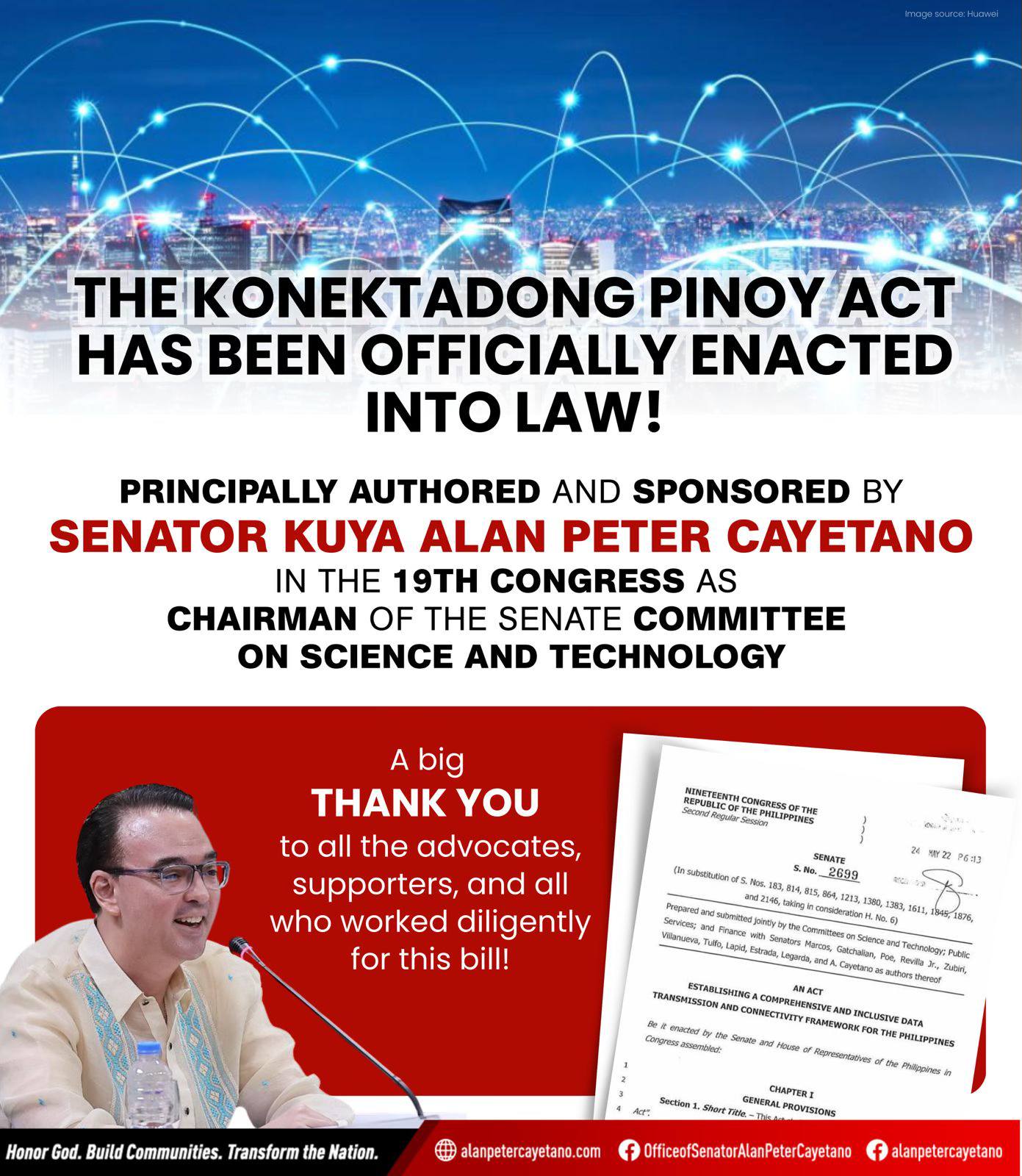
BAGUIO CITY, Philippines — The Konektadong Pinoy Act has officially lapsed into law, ushering in reforms aimed at lowering internet costs, improving service quality, and expanding access across the Philippines.
Originally authored by Senator Imee Marcos and later sponsored in the 19th Congress by Senator Alan Peter Cayetano as chair of the Senate Committee on Science and Technology, the measure seeks to end the long-standing problems of slow, expensive, and unreliable internet service in the country.
Under the new law, internet service providers will be encouraged to enter the market through easier access to telecommunications infrastructure, fostering competition that is expected to result in more affordable and higher-quality services.
Providers will also be required to meet minimum service standards and promptly address consumer complaints, strengthening protections for users.
Students stand to benefit from special discounts on internet services, while infrastructure rollout will be prioritized near schools.
Both senators noted that the law aims to ensure that no child is left behind in class, no overseas Filipino worker loses contact with family due to poor connection, and no business is disadvantaged by inadequate internet access.

Cayetano emphasized that the Act should work in tandem with other measures such as the E-Governance Act and the government’s digital highway masterplan to modernize the country’s information and communications technology.
“Kahit anong gaganda ng plano mo for ICT, kung di ka rin connected, wala ring mangyayari,” Cayetano said.
(No matter how good your ICT plans are, if you’re not connected, nothing will happen.)
Marcos, meanwhile, stressed the broader impact of the law: “Hindi na ito dapat maging pribilehiyo ng iilan, kundi serbisyo na para sa lahat.”
(Internet should no longer be a privilege for the few, but a service for all.)
The Department of Information and Communications Technology (DICT) is expected to craft the Implementing Rules and Regulations (IRR) that will define how the law’s provisions will be carried out.
Share
